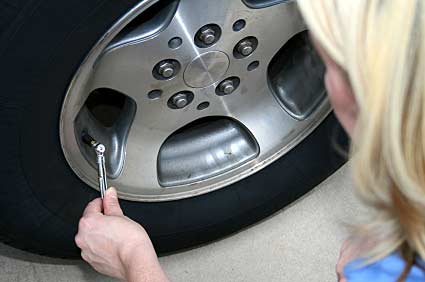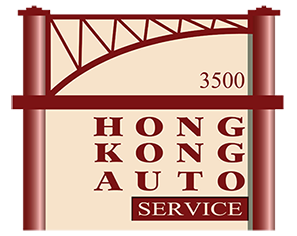How to prevent the scorching heat from leaving you stranded
While we may feel plagued by the recent streak of stifling heat and thick humidity, the extreme temps also take a toll on your car. Aged or worn components are more likely to fail in hot weather than in cold, and you may not want to learn the hard way where “the weakest link” is in your car.
Here’s a look at the top 6 most susceptible systems:
1) Your Cooling System
Not to be confused with the air conditioning system, your cooling system prevents the engine from overheating and having a literal meltdown. It maintains the desired engine temperature by using coolant—a  50-50 mixture of water and antifreeze—to carry the heat away from the engine and into the radiator, where it is cooled by the passing air or the radiator fan. Your cooling system also includes the coolant hoses, water pump, and a thermostat.
50-50 mixture of water and antifreeze—to carry the heat away from the engine and into the radiator, where it is cooled by the passing air or the radiator fan. Your cooling system also includes the coolant hoses, water pump, and a thermostat.
Cooling systems fail more often than any other mechanical system, usually because of neglect. Over time, engine coolant becomes contaminated, and its protective qualities are depleted. If severely neglected, it can become like a brown sludge instead of the translucent fluid it once was. Flushing the coolant is the number one maintenance item for this system. Coolant that is brown with contaminants or thick with sludge cannot properly circulate through the radiator or your engine’s cooling passages, and it cannot properly dissipate the heat.
While older coolants needed to be replaced every couple of years, newer coolants generally last at least 4 or 5 years and 50,000 miles. Consult your owner’s manual for factory recommendations, or ask your CARS technician to inspect the condition of the coolant for you. In hot weather, it’s also smart to periodically check the coolant level in your system. (Warning: Avoid the risk of a serious burn: Never remove the radiator cap when the engine is hot. Always check the coolant level by looking at your overflow tank.)
In addition, inspect drive belts and hoses for cracks, soft spots and other signs of wear or age. Taxing them in the heat may be all it takes to lead to a coolant leak, a broken belt and a possible breakdown.
2) Your Car Battery
Most of us associate battery problems with the winter, but summer heat can be a bigger enemy than the cold. Heat and vibration are a battery’s two worst enemies, leading to internal breakdown and eventual failure. While you can’t do much about the heat, you can make sure your battery is securely mounted in place to minimize vibration. You’ll also want to clean up any corrosion on the battery terminals and cable clamps and ensure the clamps are secured tightly in place.Car batteries usually last 4 to 5 years. If your car’s battery is more than 3 years old, it’s smart to have it tested by your ASE-Certified CARS of America technician, who can help determine how much longer it will last. When you consider the alternative, you’ll thank yourself for being proactive.
3) Your Ignition System
As ignition wires or spark plug wires age, the insulation around them can become cracked and weak. These wires deliver the electrical spark from your distributor to your spark plugs, and electricity is lazy in that it always looks for the easiest path to ground. If the insulation is too worn, the electrical spark may find an easier path to ground through the insulation to the engine block or another metal component. It may not reach the spark plug, causing the engine to misfire, idle rough, or hesitate upon acceleration. Humid and rainy days make this condition worse by making it easier for the current to jump through the air to ground.
If you’ve been neglecting your car’s tune-up needs, you could be a prime candidate for a problem. Consult your CARS Client Care Specialist today to schedule a complimentary ignition system inspection. We can determine the degree to which the ignition components may be worn and provide an estimate for those that are at the end of their life cycle. If everything is in good order, you’ll drive away with peace of mind, ready to tackle another 100-degree day.
4) Your Tires
Driving on under-inflated tires not only affects the handling and braking of a vehicle, it also can cause tires to overheat and increase the likelihood of a blowout, reports AAA Chicago. This problem becomes even more of a concern when road temperatures are extremely high.
 Tires should be checked when the car has not been driven recently, and they should be inflated to the pressure recommended by the vehicle manufacturer, not the number molded into the tire sidewall. Recommended tire pressures can be found in the owner’s manual or on a sticker normally located on the driver’s door jamb. Some vehicles use different pressures for the front and rear tires.While checking the tire pressures—including the spare—you should also inspect the tire treads for adequate depth and any signs of uneven wear that might indicate a suspension or alignment problem.
Tires should be checked when the car has not been driven recently, and they should be inflated to the pressure recommended by the vehicle manufacturer, not the number molded into the tire sidewall. Recommended tire pressures can be found in the owner’s manual or on a sticker normally located on the driver’s door jamb. Some vehicles use different pressures for the front and rear tires.While checking the tire pressures—including the spare—you should also inspect the tire treads for adequate depth and any signs of uneven wear that might indicate a suspension or alignment problem.
5) Your Air Conditioning System
While it may seem that your air conditioning system should be built to perform in the heat, even it has its limits. And when it’s 98 degrees outside, the A/C system works overtime to try to keep your car cool. You’ve no doubt noticed that it simply isn’t able to cool your car as well on a super hot day than on a mildly hot day. Anything working at full capacity for extended periods of time is going to be prone to breakdowns, and this kind of weather can bring a weakness in your A/C system to the surface.
If you notice your system is not churning out the ice cold air on a normal day, there may be a small leak that has allowed refrigerant to escape. You’ll want to have this diagnosed when you’re able because, if the refrigerant becomes too low, the A/C compressor will not be able to kick on, essentially leaving you without any cooling capacity.
6) Your Fuel Pump
While we see more fuel pump failures in the heat, the preventive measure is an easy one. Pumps generate heat, which is multiplied on scorching days. If you let your fuel drop below a quarter tank, there isn’t enough fuel in the tank to cool the pump. But if you keep more gas in your tank, it will keep the pump cool, making it much less prone to a failure.
While nothing is guaranteed, preventive maintenance and proactive inspections can go a long way toward preventing an unwanted roadside breakdown. If you believe your car is susceptible, schedule an appointment today for a full evaluation.
